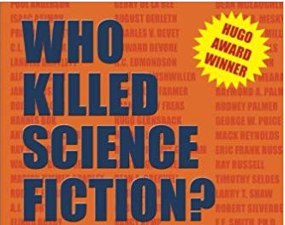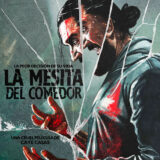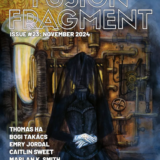There is a curious phenomenon not exclusive to science fiction fandom, it is prevalent in pop music worship and other places, by which those afflicted feel a need to establish rivalries. The Star Wars fan who vociferously attacks all things Star Trek. And vice versa. The Star Trek fan determined to argue against every facet of Babylon 5. Those who can not enjoy both The X Files and Fringe. New Who vs Old Who. It goes on.
These rivalries exist almost exclusively in the minds of fans. It is hard to imagine George Lucas and Gene Roddenberry being concerned about developments in each other’s fictional universes. Some fans take their favoured film, book, franchise, too seriously. The result is evangelical zeal. Any perceived rival must be denounced. It’s not healthy, and bears very little relationship with reality. Which brings me to curious case of The Matrix and Inception.
 I’m not going to provide specific links as the debate constantly refreshes itself with the same old themes under new threads, but a browse around the discussion boards of the Internet Movie Database for either The Matrix or Inception will prove eye-opening and entertaining to those who are a) sane and b) have a life. The level of vitriol expressed by some devotees of one or the other of these films is astonishing. Don’t take my word for it. Go and have a look. Really, some of these people are crazy.
I’m not going to provide specific links as the debate constantly refreshes itself with the same old themes under new threads, but a browse around the discussion boards of the Internet Movie Database for either The Matrix or Inception will prove eye-opening and entertaining to those who are a) sane and b) have a life. The level of vitriol expressed by some devotees of one or the other of these films is astonishing. Don’t take my word for it. Go and have a look. Really, some of these people are crazy.
Time and again one view which is expressed is that Inception is a ‘second-rate’, ‘cheap’, ‘rip-off’ of The Matrix. The notion doesn’t stand-up for a second unless the author can demonstrate that the former film established the main underpinnings of the latter. Those who argue along these lines, and in other similar situations, generally just demonstrate their ignorance. They appear to operate on the strange, unstated assumption that The Matrix invented virtual reality stories. They have fallen for The Matrix’s own marketing hype – remember the silly advertising campaign in which we were not supposed to tell our friends what The Matrix was? Despite the fact those same adverts made it blatantly obvious it was a virtual reality movie.
 There was nothing new or remarkable about any of the ideas in The Matrix when it was released in 1999. It was one part war-against-the-machines – a genre trope dating back decades – to one part standard VR set-up. The Doctor, as in Doctor Who, even got stuck inside a virtual reality as far back as 1976.
There was nothing new or remarkable about any of the ideas in The Matrix when it was released in 1999. It was one part war-against-the-machines – a genre trope dating back decades – to one part standard VR set-up. The Doctor, as in Doctor Who, even got stuck inside a virtual reality as far back as 1976.
The virtual reality was called The Matrix. As Wikipedia says:
The Matrix, in the long-running British science fiction television series Doctor Who, is a massive computer system on the planet Gallifrey that acts as the repository of the combined knowledge of the Time Lords.
The Matrix is first introduced in the 1976 serial The Deadly Assassin, twenty-three years before the release of the film The Matrix, six years before William Gibson’s 1982 “Burning Chrome” and years before the advent of virtual reality in the 1980s. It is one of the locations for a battle between the Doctor and Chancellor Goth, the titular assassin. Most of Part Three of the serial is spent inside the virtual reality of the Matrix where the Doctor battles an agent of the Master. The serial also explains that if a person dies while linked to the Matrix, he dies in the real world as well.
There were virtual reality novels going back as far as Raymond F. Gayolue’s Simulacron 13 (also known as Counterfeit World – 1964), and VR gaming is used as a throw-away introduction to Arthur C. Clarke’s The City and the Stars in 1953. So what Inception stole from The Matrix is far from clear. Indeed, unlike the standard VR of films like The Matrix, or eXistenZ or The 13th Floor, or Welcome to Blood City, or World on Wires, the shared reality of Inception is partly formulated from the subconscious minds of its participants, placing it more in the lineage of Dreamscape or The Cell.
Except, and here the chasm opens up, there are such things as books. I’ve already mentioned some. The fans who rave so violently for their film favourite franchise don’t seem to get out to the bookshop. Their range of reference tends to begin and end with cinema. As if anything ever happened in a movie which hadn’t happened in a book first. Usually decades earlier. It is a gulf of ignorance which results in huge misconceptions. Pretty much anything that ever happened in a SF movie happened in a novel or short story a generation or more before.
Inception owes nothing to The Matrix. Except perhaps that Warner Brothers saw that here was another film which might appeal to much the same audience. And as likely, that even if the film wasn’t a great success it would good to keep Christopher (Batman) Nolan happy so he would go on to make The Dark Knight Rises. Look through Nolan’s back catalogue and between his first two Batman films there is something much more interesting. A less well known film called The Prestige (2006). It is based on a brilliant novel by the multi-award wining British author, Christopher Priest. Priest signed the agreement for Nolan to make The Prestige the day after seeing Nolan’s second film, Memento (2000).
Which means Christopher Nolan was interested in filming The Prestige as far back as 2000. Which means he was familiar with the work of Christopher Priest that long ago. Now Christopher Priest wrote two of the finest virtual reality novels ever penned. A Dream of Wessex (1976 – published in the US as The Perfect Lover) and The Extremes (1998). A Dream of Wessex is a book a long way ahead of its time. It features a designed, collective, computer mediated dream world which is affected by the personalities of its participants. It is a world into which personalities can become lost so that they no longer realise they are dreaming. It is a world in which a ‘kick’ is required to wake those who no longer realise they are dreaming. In Inception the kick was a piece of music. In A Dream of Wessex it is a mirror held to the eyes of the dreamer.
So the English filmmaker Christopher Nolan was reading the English novelist Christopher Priest at least as far back as 2000, probably earlier, absorbing the ideas in Priest’s work at the same time or prior to the release of films like The Matrix and eXistenZ (for which Priest wrote the novelisation under the name John Luther Novak). Nolan’s Inception is a very English piece of work in every respect. It’s a world away from The Matrix. The stories, themes and characters are completely different. All they share the staple genre idea of a shared virtual reality, an idea which was not original to The Matrix. To argue that Inception is a ’cheap rip-off’ of The Matrix makes as much sense as arguing that Unforgiven is a rip-off of The Wild Bunch because both feature men riding horses and shooting guns. If anything Inception is closer kin to the Spanish film Abre los Ojos (Open Your Eyes – remade (badly) as Vanilla Sky) and the British TV series Life on Mars (remade (badly) in America as Life on Mars).
A wider awareness of genre history in all its incarnations would help. More reading would help. An awareness that Hollywood rarely originates anything would be most useful. And reading Christopher Priest’s A Dream of Wessex might just result in reframing the question as to who thought of what first.
But ultimately the two films stand alone, with their own merits and flaws. Any rivalry between them is in the eye of the beholder, or, with apologies to Stephen Donaldson, in the mirror of our dreams.











Thanks for the kind words J. My thoughts on Nolan are supposition based on a report that he had several of Priest's works on his office shelves as far back as late 2000 / early 2001.
I'm a huge fan of Christopher Nolan too.
If you work hard at it, you can compare the Matrix to Inception, but it's a pretty slim comparison. I think that Inception was a much stronger concept from the basis of the story and the plot. Describing the dream, within a dream, within another dream was very well done. I thought the entire movie worked together very well and was beautifully shot.
An excellent piece, Gary. Your discussion of Christopher Nolan quickly caught my eye as I recently decided I better stay alert in his presence, virtual or otherwise.
Some folks don't seem to truly appreiciate the difficulty in producing a movie. Inception showcased a dream within a dream within a dream. I realized with surprised (after the first viewing) that I hadn't got lost in this tortuous plot. Which is saying something about his skill as a screenwriter. I was satisfied that it stood up so well after a second viewing.
I hadn't bothered to read up on the backstory about Nolan's recent evolution, so thanks for the detailed remarks. I found the read quite illuminating. I'm curious if your comments about Nolan reading Priest's works were from Nolan himself, or is that supposition. Remarkble backstory to the film in any event.
The film I always thought was closest to a Matrix clone was "Equilibrium" – not so much in the whole "virtual reality" man vs machine thing, but in the style – lots of leather, fake stylized martial arts and a leading actor who doesn't show much emotion 😛